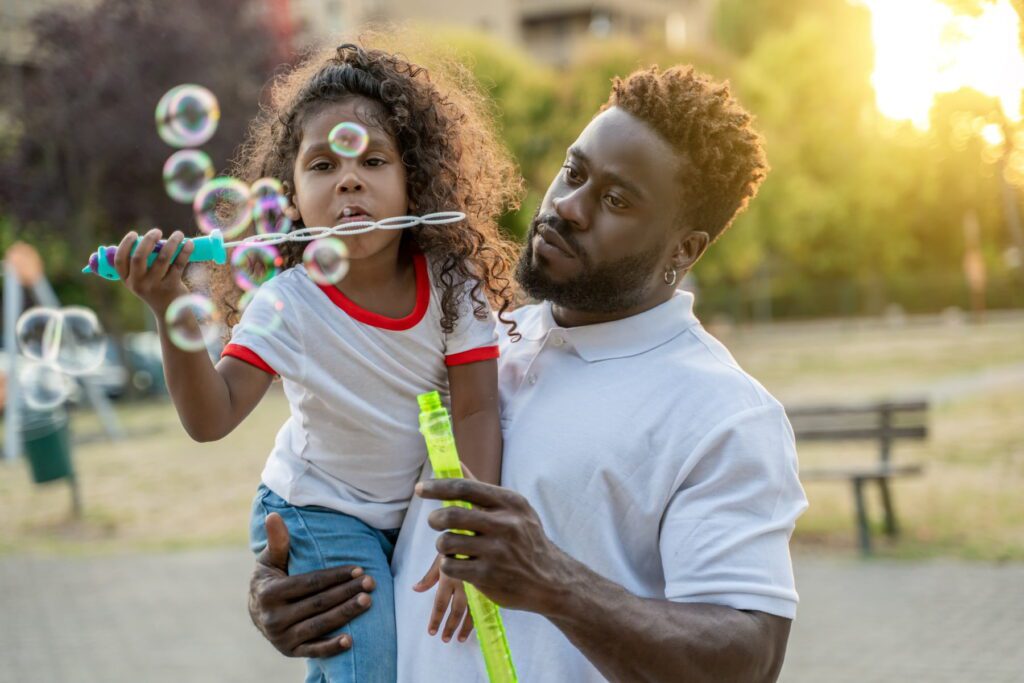Spending quality time with your toddler is not only important for building a strong bond but also crucial for their development, especially if your child has autism. Engaging in activities that cater to their unique needs can help enhance their communication, sensory processing, and social skills while providing a fun and enriching experience for both of you.
Activities that are perfect for toddlers with autism
Here is a list of activities that are both enjoyable and beneficial for toddlers with autism.
Sensory Play
Sensory play is a fantastic way to engage your toddler’s senses and help them explore different textures, sounds, and visual stimuli. Activities like playing with kinetic sand, water beads, or slime can be soothing and stimulating at the same time. You can also create a sensory bin filled with items like rice, beans, or pasta for them to sift through. These activities help improve fine motor skills and can be particularly calming for toddlers who may experience sensory sensitivities.
Bubble Play
Bubbles are a simple yet highly effective tool for engaging toddlers with autism. Chasing and popping bubbles can encourage physical movement, improve hand-eye coordination, and provide sensory stimulation. Additionally, bubble play can be used to practice communication skills. Encourage your child to express themselves by saying “more bubbles” or using gestures to indicate they want to continue the activity.
Music and Movement
Music is a universal language that can resonate deeply with children, including those with autism. Singing songs, dancing, or playing simple musical instruments like drums or tambourines can help your toddler develop rhythm, coordination, and language skills. You can also create a “music corner” in your home with different instruments and let your child explore the sounds and movements at their own pace.
Simple Puzzles and Matching Games
Puzzles and matching games are excellent for developing cognitive skills and promoting focus. Start with simple puzzles that have large, easy-to-handle pieces. Matching games with pictures of animals, shapes, or everyday objects can also be beneficial. These activities help improve problem-solving abilities and can be a fun way to introduce new concepts and vocabulary.
Storytime with Interactive Books
Reading to your toddler is always valuable, but interactive books can make storytime even more engaging. Look for books with textures, flaps, or buttons that make sounds. These elements can capture your child’s attention and make the experience more interactive. You can also encourage your child to point to pictures or repeat simple words, enhancing their language development.
Outdoor Exploration
Spending time outdoors offers a range of sensory experiences and opportunities for physical activity. Whether it’s a trip to the park, a walk in the garden, or simply playing in the backyard, outdoor activities can help your child connect with nature and practice gross motor skills. Activities like swinging, sliding, or playing in a sandbox can be both enjoyable and beneficial for your toddler’s development.
Art and Craft Projects
Creative activities like drawing, painting, or crafting can be a great way for your toddler to express themselves. Use non-toxic, washable materials and let your child experiment with colors and textures. Finger painting, using stamps, or molding clay are excellent options. Art projects not only encourage creativity but also help improve fine motor skills and hand-eye coordination.
Simple Pretend Play
Pretend play can be a powerful tool for developing social and communication skills. Even simple activities like pretending to cook with toy food, playing with dolls, or driving toy cars can be very engaging. Encourage your child to imitate real-life actions, such as feeding a doll or driving a car to the “store.” This kind of play helps toddlers with autism understand everyday scenarios and practice language in a low-pressure environment.
Engaging in activities with your toddler with autism doesn’t have to be complicated
The key is to focus on their interests, provide opportunities for sensory exploration, and create a supportive environment where they can learn and grow at their own pace. These activities not only foster development but also strengthen the bond between you and your child. By incorporating play into your daily routine, you’ll be helping your toddler build important skills while creating joyful memories together.
At Phoenix Autism Center (PAC), we understand the value of play in a child’s development, which is why we incorporate many of these activities into our child-led, play-based therapy sessions. Our approach allows children to explore their interests and engage in activities that feel natural and enjoyable to them. Whether it’s sensory play, music and movement, or simple pretend play, we tailor our sessions to each child’s unique needs and preferences. By integrating these activities into therapy, we create a supportive and stimulating environment where children can build essential skills in a way that feels like play. This approach not only fosters learning but also helps children feel more comfortable and confident as they grow.
Ready to get started?
If your child is aged 18 months to 6 years and navigating the journey of ASD, join us in a supportive environment where we focus on enhancing independence, communication, and social skills. Let’s work together to improve your family’s quality of life. Contact us today to start your journey with evidence-based, early intervention ABA therapy tailored to your child’s unique needs.




